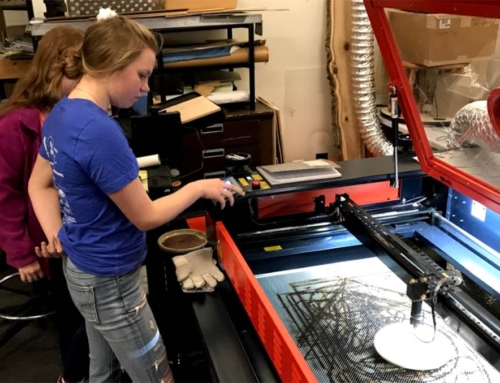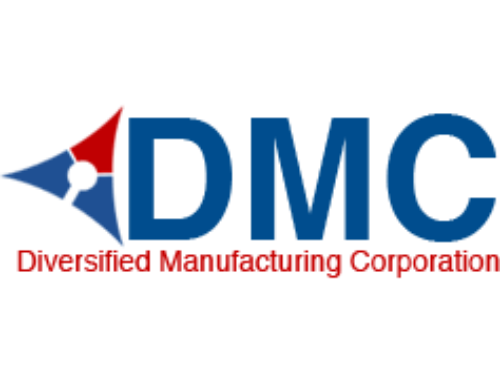Scale Up Milwaukee Becomes a Model for Helping Established Firms Grow
Resources for small companies tend to focus on startups, but businesses that are fully established face their own set of issues as they work to move on to the next phase. Scale Up Milwaukee was created to provide networking opportunities, a unique accelerator program and other resources specifically targeting growing businesses and the external factors that impact them.
As it enters its third year, Scale Up Milwaukee is already making a noticeable impact on the economy in Southeast Wisconsin. The 27 companies that have participated in its Scalerator program have created more than 200 jobs as a result of strategies spurred by the experience. They have also increased their aggregate revenue from $65 million to $95 million. These companies are on track to hit 200 jobs created within the first year after completing the program. With the addition of 18 new companies in the third Scalerator cohort, Scale Up Milwaukee projects directly impacting over $200 million in revenue and a commensurate increase in job creation.
The program is gaining attention at the national level and beyond: it was highlighted in the November 2015 issue of Harvard Business Review, and a Danish delegation will soon visit Milwaukee for several weeks to learn about the model for use back in Denmark. This follows a year in which a high-level delegation from Brazil paid a multi-day visit; the Kauffman Foundation and JumpStart (two of the best-known entrepreneurship entities in the U.S.) spent time with Scale Up Milwaukee to learn from their experiences; and national growth programs partially modeled on Scale Up Milwaukee—Scale Up America and Scale Up UK—were launched by the respective countries’ federal governments.
The program’s existence contributed to Wisconsin’s 2015 ranking as the second-best state in the U.S. for scaling up midmarket companies. Innovation America included Scale Up Milwaukee in its “Best of 2015” end-of-year summary.
Closer to home, Lt. Governor Rebecca Kleefisch listed Scale Up Milwaukee first on her list of “5 Cool Things I Saw This Year” for 2015. “I’ve talked with several Scalerator classes, and always walk away excited by the energy, enthusiasm and creative spirit on display from these small business owners out to make their American dreams into realities,” she wrote. Local and regional economic development partners in many areas of Wisconsin have reached out to Scale Up Milwaukee to discuss how the model might be implemented in their geographic areas.
“Small, but established companies—especially companies in distressed or disadvantaged areas—live in their own valley of death,” says Lee Swindall, vice president of business and industry development for the Wisconsin Economic Development Corporation (WEDC), which has already invested $350,000 in Scale Up Milwaukee and is about to invest $500,000 more through its Targeted Industry Project Program. “For these companies, funding and liquidity are limited. They really have to work at qualifying for commercial loans to support growth, and at the same time, they lack the glamour of the startups that compete for venture capital investments.”
The company featured in Harvard Business Review, West Allis-based industrial painting company Raphael Industries, began to think bigger about its own potential as a result of participating in Scalerator. Steve Cronce, the company’s president told the magazine that the program helped him to see the broader opportunity presented by one account in particular: “dead” x-ray tube parts sent to Raphael by GE Healthcare for recoating and recommissioning. Through conversations with Scalerator mentors and peers, Cronce reenvisioned the company as “a strategic link in the global medical imaging supply chain,” rather than simply a paint shop. Thanks to insights generated through participation in Scalerator, the company’s business has gone from $1 million a year to nearly $10 million.
“By serving as GE’s and other equipment makers’ supply partner, the whole world is now my scope,” Cronce told the magazine. “I am no longer limited by geography.”
Scale Up Milwaukee is an initiative of the Greater Milwaukee Committee, with active guidance from entrepreneurship ecosystem thought leader Daniel Isenberg, professor of entrepreneurship practice at Babson College and also a faculty member at the Harvard Kennedy School of Government (and formerly at Harvard Business School).
“This class of companies constitutes a very substantial proportion of all businesses in the M7 region and beyond,” says Swindall, in explaining why WEDC felt that support for Scale Up Milwaukee was a wise investment. “This market segment cuts across all industries, and is essential to the economic health of the urban economy, the regional economy and the state economy—and these efforts are helping to transform these companies into much stronger competitors for investment, customers, employees and market share.”
In 2016, Scale Up Milwaukee has plans for a fourth Scalerator class, as well as several new programs:
- A Scalerator “prep” course to expand the number of companies ready to participate in Scalerator;
- A Scale Up membership program for people and institutions from throughout the region who care about business growth; and
- A roundtable convening organizations that support entrepreneurial activity throughout the region.
The Scalerator program is reaching demographics that have been traditionally underserved, notes Brian Schupper, director of policy for the Greater Milwaukee Committee and executive director of Scale Up Milwaukee: nearly one-third of the 45 companies in the first three Scalerator classes are at least partially owned by minorities, and the same proportion of Scalerator companies are at least partially owned by women. More than 40 percent of Scalerator companies are located in either a minority-majority community or in a low- or moderate-income census tract.
“In our work with national and local partners, one of our biggest concerns has been how to grow diverse companies with diverse talent, across Milwaukee and the region, including in the inner city,” says Schupper. “This review of the first three Scalerator classes shows that we’re making progress on fostering a vibrant—and diverse—growth ecosystem.”
Swindall adds that Scale Up Milwaukee “is another example of how Wisconsin is reaching best-in-class in business and industry development by leveraging strategic public-private partnerships.”
(January 2016)










FOLLOW US